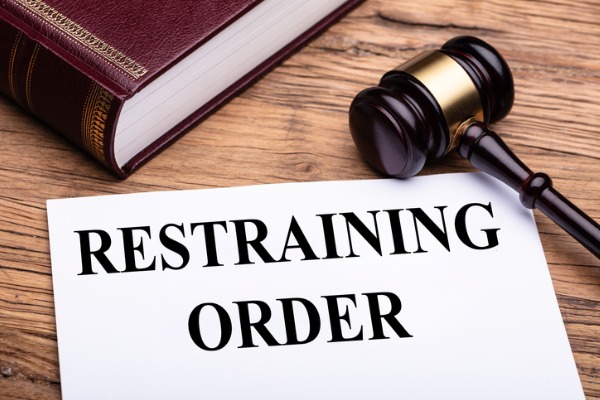In order to preserve the status quo between the time that the petition for dissolution of marriage is filed and a party seeks other court orders, the summons in a family law matter contains automatic restraining orders. Those orders are immediately effective against the petitioner when the summons is issued, because the petitioner acknowledges the terms of the orders and that the orders apply to the petitioner when the petitioner signs the petition before filing it. The orders are effective against the respondent when the summons is served on the respondent.
Page 1 of the family law summons contains the following notice:
NOTICE—RESTRAINING ORDERS ARE ON PAGE 2: These restraining orders are effective against both spouses or domestic partners until the petition is dismissed, a judgment is entered, or the court makes further orders. They are enforceable anywhere in California by any law enforcement officer who has received or seen a copy of them.
Page 2 of the family law summons contains the following automatic restraining orders against both parties:
Starting immediately, you and your spouse or domestic partner are restrained from:
- removing the minor children of the parties from the state or applying for a new or replacement passport for those minor children without the prior written consent of the other party or an order of the court;
- cashing, borrowing against, canceling, transferring, disposing of, or changing the beneficiaries of any insurance or other coverage, including life, health, automobile, and disability, held for the benefit of the parties and their minor children;
- transferring, encumbering, hypothecating, concealing, or in any way disposing of any property, real or personal, whether community, quasi-community, or separate, without the written consent of the other party or an order of the court, except in the usual course of business or for the necessities of life; and
- creating a nonprobate transfer or modifying a nonprobate transfer in a manner that affects the disposition of property subject to the transfer, without the written consent of the other party or an order of the court. Before revocation of a nonprobate transfer can take effect or a right of survivorship to property can be eliminated, notice of the change must be filed and served on the other party.
Page 2 of the family law summons also provides as follows:
You must notify each other of any proposed extraordinary expenditures at least five business days prior to incurring these extraordinary expenditures and account to the court for all extraordinary expenditures made after these restraining orders are effective. However, you may use community property, quasi-community property, or your own separate property to pay an attorney to help you or to pay court costs.
A person who violates these automatic restraining orders is subject to contempt, which can include jail time, or other sanctions, such as monetary sanctions.
If you are subject to these restraining orders and do not understand your rights and liabilities, please contact the Wilson Law Firm, A Professional Corporation.

